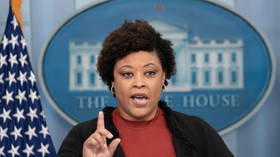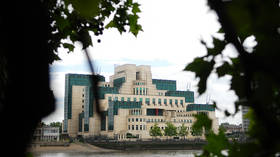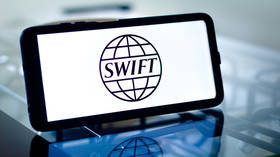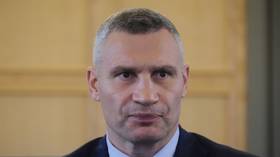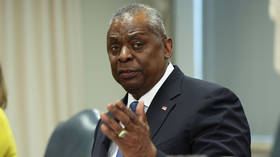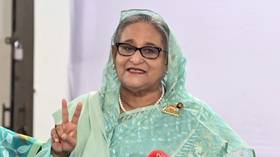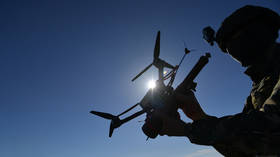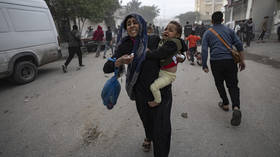Zelensky wants West ‘to teach’ Russia
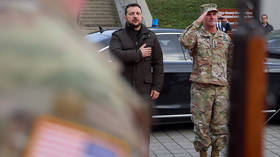
Ukraine can continue to resist Russia only if Western countries show solidarity on numerous fronts while intensifying joint arms production programs, President Vladimir Zelensky has said.
Speaking via video link at the annual Society and Defense conference held in Sweden on Sunday, Zelensky claimed that Russia, which he described as “a much larger enemy… in terms of military strength,” was using “the potential… amassed over the lifetimes of several generations” against both Ukraine and Europe.
Zelensky said Moscow’s attacks on Ukraine, and what he described as its “hybrid” activities against the West, could be foiled only via cooperation on numerous fronts. “To fight successfully, to reclaim what is yours… and to teach the aggressor that aggression brings no benefits, is only possible if defense gets strength from solidarity,” Zelensky stated.
In this vein, he urged his European partners to “create an arsenal for the defense of freedom” by intensifying joint weapons production. “Regardless of which political moods will dominate on both sides of the Atlantic, our strength can and should be sufficient to protect our way of life," he added.
Zelensky’s comments come after Ukrainian Foreign Minister Dmitry Kuleba admitted last month that Kiev was aware of acute concerns in the West regarding Ukraine’s prospects in the conflict, as well as growing “war fatigue” following the country’s botched counteroffensive.
In early November, Italian Prime Minister Giorgia Meloni acknowledged in a phone call with a pair of Russian pranksters that EU nations were getting tired of the conflict and that it would eventually have to be resolved through some kind of a compromise.
Meanwhile, the EU’s top diplomat Josep Borrell warned in December that the parliamentary election in the bloc scheduled for later this year could result in right-wing politicians – many of whom have been skeptical about sending arms to Ukraine – gaining more clout.
On the other side of the Atlantic, US President Joe Biden has vowed to support Ukraine “as long as it takes,” but his efforts have been hampered by congressional gridlock. Republicans continue to block the White House’s supplemental funding request, which includes more than $60 billion for Ukraine, demanding that the administration do more to enhance border security.
Russia has repeatedly warned the West against sending weapons to Ukraine, arguing it will only prolong the conflict and make it a direct participant in the hostilities.
